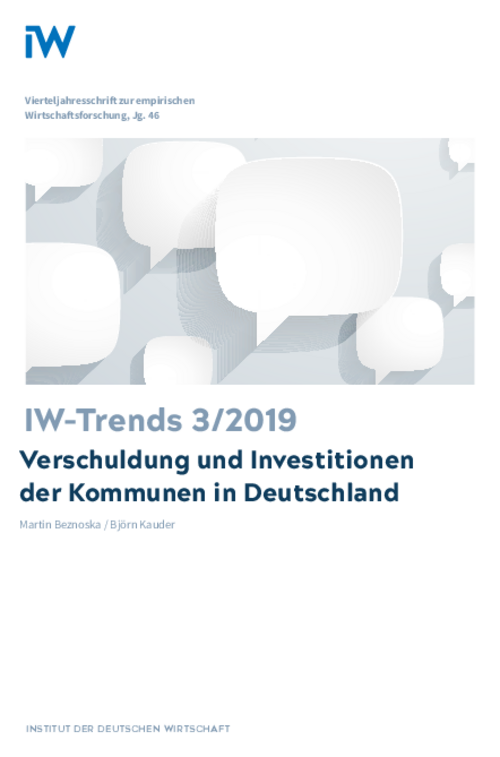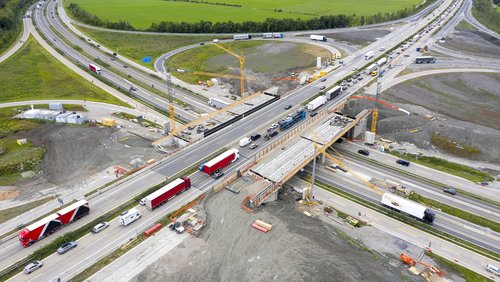The financial situation of many municipalities in Germany has deteriorated considerably over the past 20 years. Not all municipalities have been able to cope with structural change, the 2009 financial crisis, migration and the demographic transition within the limits of the resources available to them.

Debt and Investments of Municipalities in Germany
IW-Trends

The financial situation of many municipalities in Germany has deteriorated considerably over the past 20 years. Not all municipalities have been able to cope with structural change, the 2009 financial crisis, migration and the demographic transition within the limits of the resources available to them.
This article examines the borrowing and investment activity of local governments at the level of Germany’s federal states. Between 2001 and 2018 so-called “cash advances” came to play an increasingly important role in the Saarland, Rhineland-Palatinate, North Rhine-Westphalia and Hesse. This happened despite the fact that these borrowing facilities are actually only intended to provide liquidity for local administrations with fluctuating revenues and expenditures. Overall, local government investment is trending sideways with only relatively moderate declines. While there is hardly any correlation between other forms of municipal debt and investment activity, a high level of cash advances is accompanied by a low rate of investment. This suggests that in the long term municipalities heavily burdened with this type of loan are likely to run into even greater financial difficulty. Potential solutions to the financial crisis facing many municipalities would involve state governments assuming the cash advances of highly indebted municipalities and establishing a local government investment programme. However, the states’ restricted scope of action, to which the debt brake, which forbids them to take on new structural debt, is contributing, threatens to limit the resources available for either debt relief or investment support.

Martin Beznoska / Björn Kauder: Verschuldung und Investitionen der Kommunen in Deutschland
IW-Trends

More on the topic

Challenges for the debt brake
In 2019, Bardt et al. (2019) initially presented a comprehensive estimate of the unmet public investment needs in Germany not covered in household planning at the time, totaling around €460 billion over ten years.
IW
The Challenges to the Sustainability of Germany’s Public Finances
The German government’s fiscal responses to the Covid-19 pandemic and the Ukraine war in an attempt to cushion their impact have driven up the country’s general government debt-to-GDP ratio.
IW